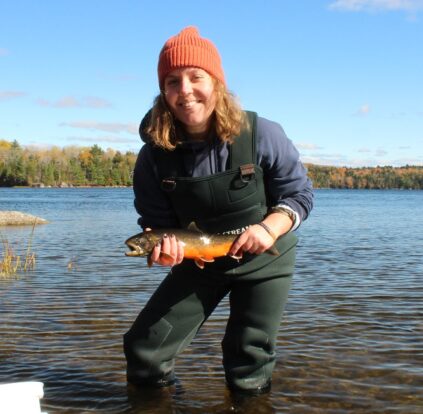About us
The Sequencing and Bioinformatics Metadata project is funded through the Maine-eDNA RII Track-1 EPSCoR
grant supported by the National Science Foundation award #OIA-1849227. Maine-eDNA is a Maine coast-wide
research effort to determine the efficacy of ecosystem monitoring through environmental DNA (eDNA).
The metadata project is directly related to the goals of Theme 3: Macrosystem eDNA Integration, but also
involved in Theme 1: Sustainable Fisheries and Theme 2: Harmful and Shifting Species. Our efforts
contribute to the Data Management and Data Analysis Pipeline work groups.
The Sequencing and Bioinformatics Metadata project is a collaboration between the Coordinated Operating
Research Entities (CORE) environmental DNA (eDNA) Laboratory and the Data Management Team to facilitate
the development of a web application for the management and tracking of eDNA samples.
More about Maine-eDNA
The Metadata Team
Insight into environmental DNA metadata was an effort that received input from multiple collaborators across and outside of the grant. The metadata team were the effort behind compiling, modeling, and implementing Maine-eDNA Metadata.












